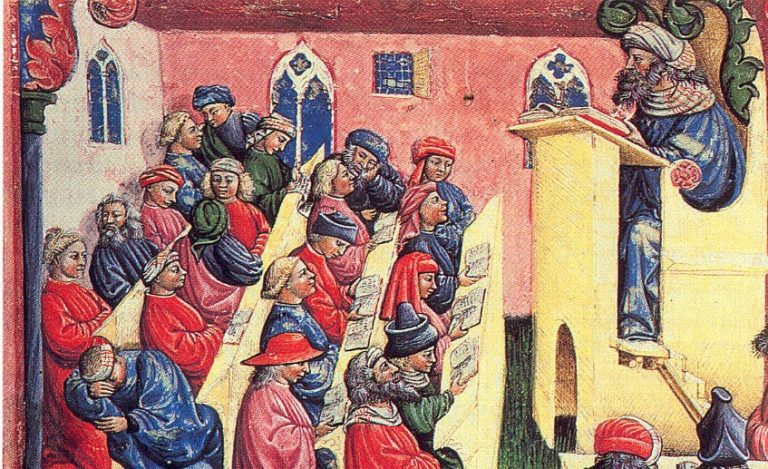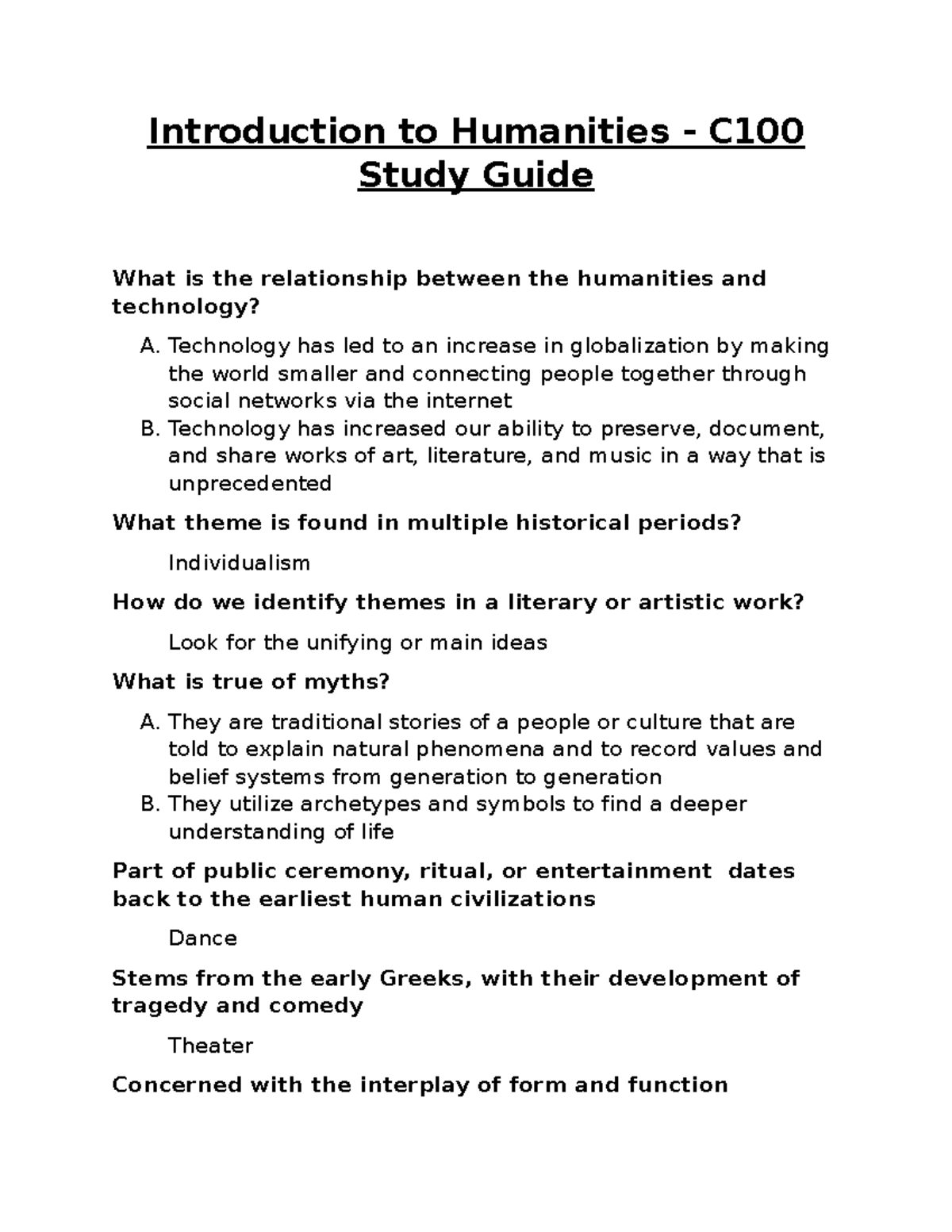The Medieval Studies Conference represents a pinnacle of scholarly achievement, bringing together the global community of medievalists for an inspiring three-day event at Harvard Yard. Celebrating over a century of medieval scholarship, this year’s gathering attracted more than 800 academics from 23 countries, showcasing a vibrant array of workshops, presentations, and discussions. With notable figures such as Geoffrey Chaucer leading the way in historical studies, attendees engaged in interdisciplinary research that bridged the past and present. The conference served not only as a platform for young scholars to present their findings but also as a homecoming for the Medieval Academy of America, reiterating the significance of evolving perspectives in the field. As participants explored the rich tapestry of medieval literature and cultural legacy, the event renewed the commitment to advancing knowledge and appreciation for this fascinating era.
The gathering aimed at honoring the past and examining future directions in medieval scholarship drew an impressive crowd of specialists dedicated to the study of the Middle Ages. This conference, drawing parallels with historical intellectual pursuits, provided a unique opportunity for researchers to delve into topics ranging from medieval trade practices to literary analysis of notable works, such as those by Geoffrey Chaucer. The interdisciplinary nature of the event highlighted an engagement with varied methodologies within historical studies, allowing for collaborative discussions on how different cultures influenced medieval experiences. Furthermore, the Medieval Studies Conference fostered an inclusive environment for new voices, igniting discussions on contemporary relevant themes paralleling the medieval era. In essence, this gathering represented a commitment to enriching the conversation around historical inquiry and cultural reflections within the medievalist community.
The Return of the Medieval Academy of America to Harvard
This year’s Medieval Academy of America conference marked a significant milestone as it returned to its roots in Harvard Yard after 50 years. The event, celebrating its centennial anniversary, gathered over 800 medievalists from 23 countries, illustrating the vibrant community and diverse interests that characterize medieval scholarship today. The presence of prominent scholars and emerging voices alike highlighted the event as a key platform for interdisciplinary research, a critical aspect of understanding historical narratives from multiple perspectives.
At the heart of the discussions was the exploration of how medieval studies has evolved, reflecting changes in cultural perspectives and research methodologies. Sean Gilsdorf, the administrative director of the Committee on Medieval Studies, emphasized the importance of revisiting historical contexts while simultaneously looking forward to the future of the discipline. With sessions ranging from trading patterns in medieval Venice to the interpretations of Chaucer’s works, attendees were reminded of the relevance and depth of historical studies.
Exploring Geoffrey Chaucer’s Legacy in Modern Contexts
Geoffrey Chaucer, a central figure in medieval literature, remains as poignant today as he was in the 14th century. His insights into the complexities of societal narratives resonate with contemporary issues, such as the spread of misinformation and the nature of artistic expression. Fernanda García-Oteyza’s analysis of Chaucer’s ‘The House of Fame’ illustrates how medieval literature continues to echo in modern texts, making a compelling argument for the interdisciplinary relevance of historical studies.
The discussions surrounding Chaucer at the conference not only highlighted his literary genius but also served to bridge the gap between historical and contemporary scholarship. By engaging with Chaucer’s themes of rumor, authority, and creativity, scholars like García-Oteyza facilitate a dialogue that invites modern audiences to reconsider their understanding of truth and fiction. Such connections ensure that Chaucer’s voice remains influential in understanding the complexities of human communication, further enriching the tapestry of medieval studies.
Interdisciplinary Approaches to Medieval Studies
The conference served as a vibrant forum for interdisciplinary research, showcasing diverse methodologies that push the boundaries of traditional medieval studies. With presentations covering topics from trade agreements in medieval Venice to the cultural implications of the Tailteann Games, scholars demonstrated the multifaceted nature of historical inquiry. For example, Elena Shadrina’s work on medieval documentation practices exemplifies how merging historical documents with legal studies can illuminate broader societal trends and dynamics.
Such interdisciplinary frameworks enable participants to engage with the medieval world from various lenses, fostering rich discussions on the intersections of literature, history, and cultural studies. As graduate students and established academics shared their insights and research findings, it became clear that this collaborative spirit is vital for the growth and evolution of medieval scholarship. These efforts not only yield more comprehensive understandings of the medieval past but also inspire future generations of scholars to pursue innovative research pathways.
A Global Perspective on the Middle Ages
One of the standout themes of the Medieval Studies Conference was its emphasis on a global perspective of the Middle Ages, moving beyond the traditional Eurocentric narratives. Assistant Professor Anna Wilson’s pedagogy workshop on teaching the Global Middle Ages invited attendees to consider how medieval history unfolded in diverse regions, including Asia, Africa, and the Islamic world. This approach broadens the scope of historical studies, allowing for a richer understanding of medieval interactions across cultures.
By presenting research that highlights the interconnectedness of various medieval societies, scholars are reshaping how students and academics perceive historical timelines and cultural influences. The conference’s encouragement of this global vision is essential for fostering a more inclusive approach to medieval studies, one that recognizes the contributions of non-Western cultures and their legacies. This shift not only enriches the field but also aligns with contemporary academic trends that prioritize inclusivity and diversity.
Networking and Collaboration Among Medieval Scholars
Attending the Medieval Studies Conference proved to be an invaluable opportunity for networking and collaboration among scholars from various backgrounds. Graduate students like Emily Sun expressed their appreciation for the in-person interactions that conferences facilitate, emphasizing that these moments inspire intellectual growth and foster community. Engaging with established experts and peers allows for the exchange of ideas that often leads to potential collaborations or new research directions.
The collective enthusiasm at the conference underscores the importance of face-to-face dialogue in the academic sphere. It is within these interactions that lasting partnerships are formed, and common interests are identified, leading to richer scholarship within the field. As more academics collaborate across disciplines, the future of medieval studies looks promising, with an ever-expanding pool of knowledge and innovative research being developed.
Impacts of COVID-19 on Scholarly Engagement
The COVID-19 pandemic significantly altered the landscape of academic conferences, with many events shifting to online formats. However, the return of in-person gatherings like the Medieval Academy conference allowed scholars to reconnect and share their work in a more dynamic environment. Participants noted a renewed appreciation for the opportunities that conferences provide, allowing for deep conversations that go beyond what virtual settings can offer.
As academics gathered to discuss their research, the sense of community was palpable, exemplifying the integral role these events play in the scholarly ecosystem. The ability to engage in real-time discussions not only inspires individual research but also strengthens the field of medieval studies as a whole. The collaborative spirit fostered at these conferences is crucial for advancing historical studies and enriching the broader academic discourse.
The Importance of Pedagogy in Medieval Studies
Education plays a crucial role in the advancement of medieval studies, and this year’s conference dedicated significant attention to pedagogy. Educators engaged in workshops aimed at refining their teaching strategies to include a more global approach to the Middle Ages. This focus on pedagogy is essential for preparing the next generation of scholars to think critically about historical narratives and their implications.
Innovative teaching methods discussed at the conference will help students better understand the complexities of medieval societies and their legacies in today’s world. By equipping educators with the tools to present diverse perspectives, the field of medieval studies can inspire a more nuanced appreciation of history among students, fostering a lifelong interest in historical research and interdisciplinary inquiry.
Significant Research Contributions at the Conference
The Medieval Studies Conference highlighted significant research contributions, showcasing the innovative work of graduate students and established scholars alike. Presentations ranged from Colin Brady’s exploration of the Óenach Tailteann to insights into medieval trade practices by Shadrina. Each presentation reflected a commitment to deepening our understanding of medieval cultures and exchanges.
The breadth of research presented at the conference not only underscored the richness of medieval scholarship but also encouraged dialogue among attendees about future research directions. Engaging with contemporary methodologies and historical inquiries may spark new lines of research that could redefine how we understand the medieval period. The efforts demonstrated at the conference exemplify the vibrant and evolving nature of historical studies.
Celebrating 100 Years of the Medieval Academy of America
The centennial celebration of the Medieval Academy of America marked a significant milestone in the field of medieval studies, honoring a legacy that has influenced scholarship for generations. The event highlighted how the academy has fostered connections among scholars, facilitated important research, and evolved alongside the changing landscapes of academia. As participants gathered to celebrate this achievement, they reflected on the academy’s impact on medieval scholarship and the direction it is heading.
Looking forward, the enthusiasm expressed at the conference suggests a bright future for the medieval studies community. Scholars are eager to build upon the foundation laid by their predecessors, exploring new avenues of inquiry and expanding the boundaries of the discipline. As the Medieval Academy of America continues to adapt to contemporary scholarly needs, it promises to remain a vital hub for medievalists around the world.
Frequently Asked Questions
What is the significance of the Medieval Studies Conference at Harvard?
The Medieval Studies Conference at Harvard, notably hosted by the Medieval Academy of America, is a cornerstone event for medieval scholars worldwide. Celebrating its centennial in 2025, this conference provides a platform for interdisciplinary research, showcasing the evolution and current trends in medieval scholarship. Attendees engage in workshops, presentations, and discussions, fostering collaboration among historians and literary experts focused on figures like Geoffrey Chaucer and broader historical studies.
Who attends the Medieval Studies Conference?
The Medieval Studies Conference attracts over 800 academics from 23 countries, including graduate students, professors, and established scholars in medieval studies. Participants come from diverse fields, reflecting interdisciplinary research that spans literature, history, and cultural studies, all converging in their exploration of medieval worlds and figures such as Geoffrey Chaucer.
What themes were explored at the recent Medieval Studies Conference?
Recent themes at the Medieval Studies Conference included the global scope of medieval scholarship, the role of historical texts such as Geoffrey Chaucer’s works, and the study of medieval trade agreements. Presentations addressed various medieval regions, emphasizing the interconnectedness of cultures in the Mediterranean, British Isles, and beyond, highlighting the importance of interdisciplinary research in advancing historical studies.
How does the Medieval Studies Conference support academic collaboration?
The Medieval Studies Conference facilitates academic collaboration by providing a space for scholars to present their work, engage in discussions, and network. Participants benefit from interactions with peers, mentors, and leading experts in medieval scholarship, allowing them to gain insights, share ideas, and build professional relationships that can foster future interdisciplinary research and projects.
What kind of presentations can one expect at the Medieval Studies Conference?
Attendees at the Medieval Studies Conference can expect a diverse range of presentations, including plenary addresses, workshops, and panel discussions. Topics often cover literary analysis of medieval texts like ‘The Canterbury Tales,’ the study of historical trade agreements, poetry, and pedagogical approaches to teaching medieval literature, all of which contribute to a deeper understanding of interdisciplinary research in medieval studies.
Why is the involvement of graduate students important at the Medieval Studies Conference?
The involvement of graduate students at the Medieval Studies Conference is crucial as it encourages fresh perspectives in medieval scholarship. These students present innovative research, such as reinterpretations of Geoffrey Chaucer’s works or analyses of medieval cultural practices, and gain valuable experience in academic dialogue. Their participation enriches the conference experience and cultivates the next generation of medievalists.
How does the Medieval Academy of America contribute to the field of medieval studies?
The Medieval Academy of America plays a vital role in promoting medieval studies by organizing conferences, publishing scholarly work, and fostering communication among academics. The Academy supports interdisciplinary research and encourages collaboration, making it a leading authority in the field, especially during significant events like the 100th annual Medieval Studies Conference held at Harvard.
What impact has the COVID-19 pandemic had on events like the Medieval Studies Conference?
The COVID-19 pandemic necessitated a re-evaluation of academic conferences, leading to an increased appreciation for in-person interactions at events like the Medieval Studies Conference. As scholars reconnect post-lockdowns, opportunities to engage directly with colleagues and share research have become even more valuable, emphasizing the importance of community in advancing medieval scholarship.
How does the Medieval Studies Conference reflect global perspectives in historical studies?
The Medieval Studies Conference reflects global perspectives by incorporating diverse topics and regions in its programming, from the Mediterranean and Islamic regions to Scandinavia and Central Asia. This emphasis on global historical studies broadens the understanding of medieval contexts and interconnections, showcasing how interdisciplinary research transcends geographical and cultural boundaries within the field.
What role does the Committee on Medieval Studies at Harvard play in the conference?
The Committee on Medieval Studies at Harvard is instrumental in organizing and facilitating the Medieval Studies Conference, overseeing program development and speaker selection. This committee ensures the event aligns with current trends in medieval scholarship and provides a forum for both emerging and established scholars, marking Harvard’s significant contribution to the field over the past century.
| Key Points | Details |
|---|---|
| Conference Gathering | Hosted over 800 academics from 23 countries for the Medieval Academy of America’s 100th annual meeting. |
| Discussions | Included workshops, presentations, and plenary addresses examining interdisciplinary approaches in medieval studies. |
| Historical Significance | Reflects on the 100-year evolution of medieval studies since the Academy’s establishment in Cambridge and Boston. |
| Key Presentations | Featured topics such as medieval trade agreements, the Óenach Tailteann, and new translations of medieval texts. |
| Future Directions | Encouraged discussions on the global perspective of medieval studies and the scholarship of the next century. |
Summary
The Medieval Studies Conference at Harvard highlighted the rich tapestry of medieval scholarship that has thrived for a century. Engaging diverse voices from around the globe, the conference not only celebrated past achievements but also paved the way for future exploration in the field. Scholars reflected on historical narratives while embracing interdisciplinary approaches and global perspectives, ensuring that medieval studies evolve and engage broader contexts. As such, this gathering serves as a vital reminder of the importance of academia in unearthing truths and fostering connections, reinforcing that the pursuit of knowledge across time remains a universally essential endeavor.


